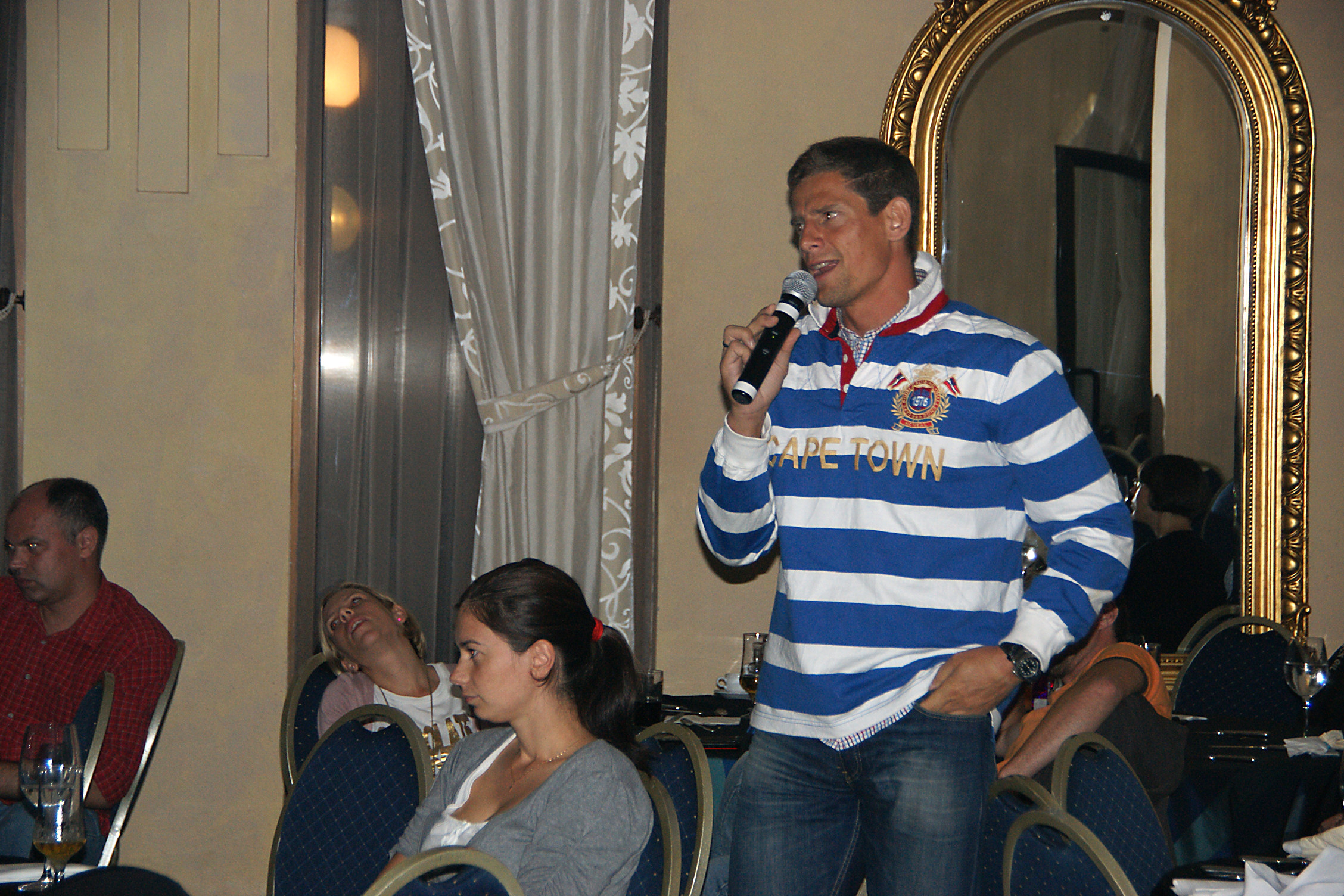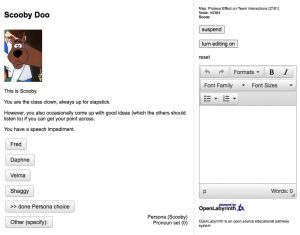One challenge that is commonly seen in team interactions is that some team members, with an ebullient, extrovert personality, can tend to dominate the interactions.

An important concept that OLab supports in its learning designs is the use of the Proteus Effect.
First described by Yee and Bailenson at Stanford[1], this curious effect is seen when you put someone into a role that is not consistent with their usual style of communicating. By placing a big dominant alpha male into a persona that is reticent and submissive during an interaction, their communication style adopts elements of the imposed persona. They become less dominant. The reverse is also true: put a meek, mild-mannered reporter into a Superman avatar — you get the drift. And interestingly, the effect persists beyond the time of the learning session. It does not vanish as soon as they relinquish their avatar.

In our initial experiments with this approach, we have found that this does not just apply to live synchronous communications. We also see some evidence of this effect in our virtual scenarios. This has not yet been studied or applied formally and so we welcome any groups who might be interested in exploring this further to contact us about a collaborative project.

You can explore our demonstrator case here: ‘Proteus Effect on Team Interactions‘ (the keyword to unlock the case is “Scooby”).
As we all find ourselves spending much more time in Zoom and other web meeting platforms, this behavioural facet may become increasingly important.
[1]. Yee, N., & Bailenson, J. (2007). The proteus effect: The effect of transformed self-representation on behavior. Human Communication Research, 33(3), 271–290. https://doi.org/10.1111/j.1468-2958.2007.00299.x

